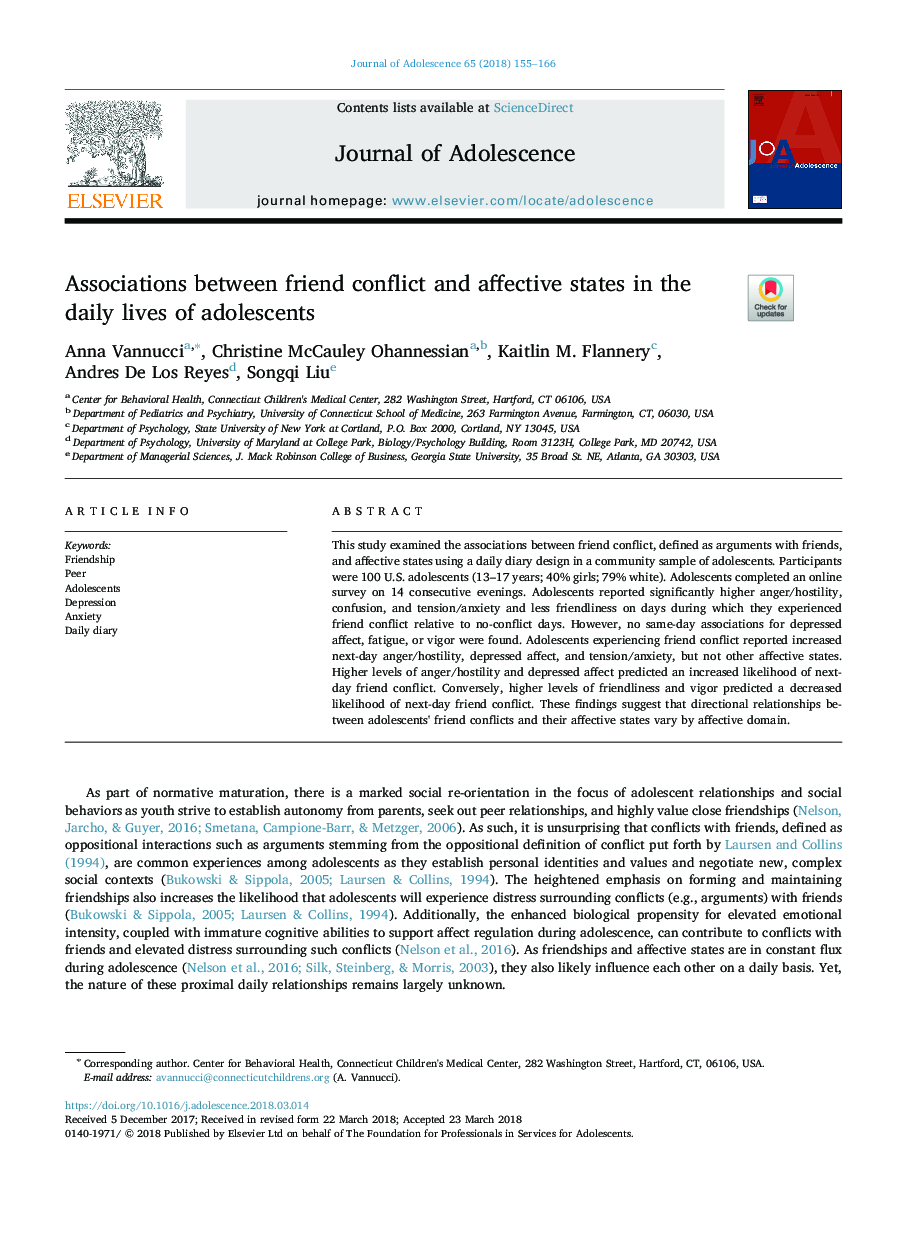| Article ID | Journal | Published Year | Pages | File Type |
|---|---|---|---|---|
| 7240847 | Journal of Adolescence | 2018 | 12 Pages |
Abstract
This study examined the associations between friend conflict, defined as arguments with friends, and affective states using a daily diary design in a community sample of adolescents. Participants were 100 U.S. adolescents (13-17 years; 40% girls; 79% white). Adolescents completed an online survey on 14 consecutive evenings. Adolescents reported significantly higher anger/hostility, confusion, and tension/anxiety and less friendliness on days during which they experienced friend conflict relative to no-conflict days. However, no same-day associations for depressed affect, fatigue, or vigor were found. Adolescents experiencing friend conflict reported increased next-day anger/hostility, depressed affect, and tension/anxiety, but not other affective states. Higher levels of anger/hostility and depressed affect predicted an increased likelihood of next-day friend conflict. Conversely, higher levels of friendliness and vigor predicted a decreased likelihood of next-day friend conflict. These findings suggest that directional relationships between adolescents' friend conflicts and their affective states vary by affective domain.
Related Topics
Health Sciences
Medicine and Dentistry
Public Health and Health Policy
Authors
Anna Vannucci, Christine McCauley Ohannessian, Kaitlin M. Flannery, Andres De Los Reyes, Songqi Liu,
